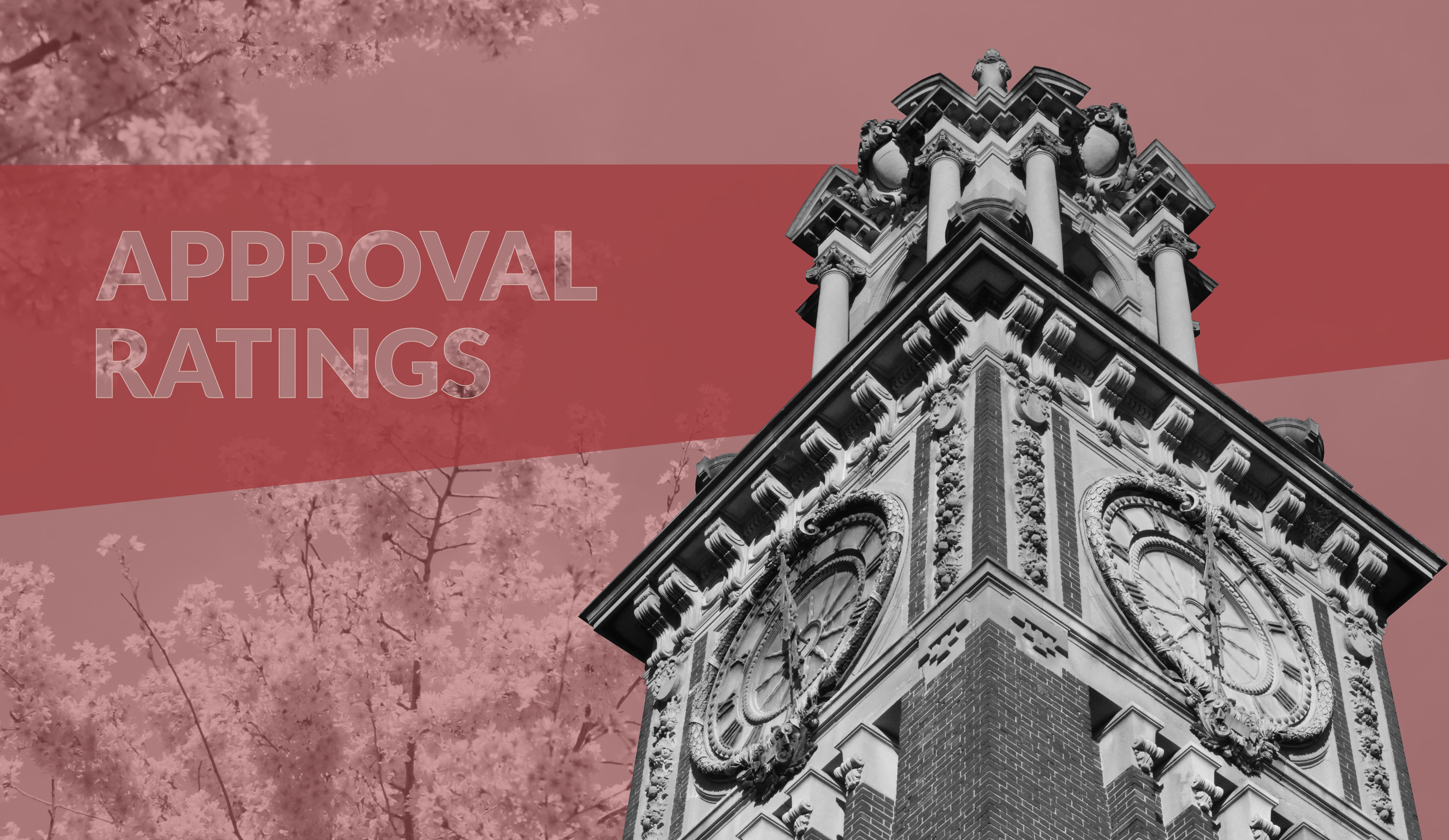Residential Life approval ratings
Almost 84% of respondents disapprove of how the Office of Residential Life is handling its job, with nearly two-thirds — 66.4% — of respondents strongly disapproving. ResLife’s approval rating was a mere 4.4%. The Herald’s poll was conducted during this year’s housing lottery, when students reported unclear communication and a lack of available beds, causing ResLife to initiate a secondary housing selection process on April 25, The Herald previously reported. A significant majority of on-campus respondents –– 87% –– disapprove of the way the Office of Residential Life is handling its job, compared to 59% of students living off campus. The proportion of students living off campus who reported having no opinion was five times greater than that among those living on campus. Disapproval of ResLife is highest among sophomores at 92%, followed by 87% among first-year students, 75% among juniors and 57% among seniors. “No opinion” was twice as common a response for seniors — who did not have to participate in this year’s housing process — than for any other class year.
Christina Paxson approval ratings
About 45% of respondents disapprove of President Christina Paxson P’19’s handling of her job, while 32.9% approve. These results mirror those of The Herald’s fall 2021 poll, in which 47.1% of respondents expressed disapproval and 32.8% expressed approval.
Students receiving financial aid expressed slightly lower approval of Paxson. First years and seniors expressed less approval of Paxson than sophomore and juniors.
Paxson’s approval rating is 11% higher among legacy students than non-legacy students. While a slightly greater proportion of legacy students approve of Paxson than disapprove, more non-legacy students disapprove of Paxson than approve.
Note: The Herald did not collect approval rating data on Paxson in spring 2013, fall 2020 and spring 2021.
Spring Weekend lineup approval ratings
Student opinions on the 2022 Spring Weekend lineup were widely distributed, with 18.7% and 10.8% of respondents somewhat or strongly approving, while 19.7% and 12.5% somewhat or strongly disapproved. The most common response was “no opinion,” which was selected by 20.9% of respondents; 17.3% neither approve nor disapprove. This year’s Spring Weekend, taking place April 29 to 31, will be the first in-person Spring Weekend since 2019 and will feature artists including Flo Milli, Ari Lennox and Amaarae.
First-year and senior respondents were the least excited about the Spring Weekend lineup, with respective approval ratings of 29% and 23%. Juniors, the oldest group which is yet to experience an in-person Spring Weekend, reported a 49% approval rating, the most favorable opinion of the lineup. Just 3.9% of seniors and 9% of first years said that they strongly approve of the lineup, compared to 18% of sophomores and 23% of juniors.
Breaking down Spring Weekend reactions by racial group, we found that non-white respondents reacted more favorably to the Spring Weekend lineup than white respondents, with 32% and 25% approval ratings, respectively. Conversely, 36% of white respondents disapproved of the lineup compared to 28% of non-white respondents. About a fifth of each group had no opinion.
UCS approval ratings
About 40% of respondents approve of how UCS is handling its job, while about 20% disapprove. In both the spring 2022 and fall 2021 polls, the most common response was “No opinion,” in line with low turnout in UCS elections — just 1,556 students voted in the recent 2022-23 academic year UCS elections. The poll took place before this semester’s UCS elections, the results of which were contested and will be followed by a runoff election.
President Biden administration approval ratings
Nearly 50% of respondents in this semester’s poll were female-identifying, compared to 45.6% of respondents who reported identifying as male. Just under 5% of respondents selected options other than male or female, an increase from 3.3% in last semester’s poll. Because Brown reports gender demographics on a binary scale consistent with federal requirements, we cannot precisely compare demographics of survey respondents to that of the undergraduate population as a whole.
